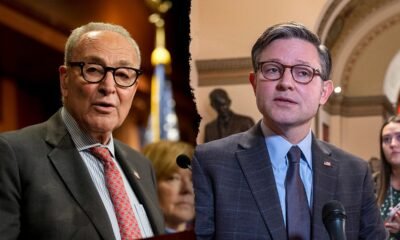INTERNACIONAL
Shutdown fight casts a shadow over jobs as Trump prepares for largest federal resignation in US history
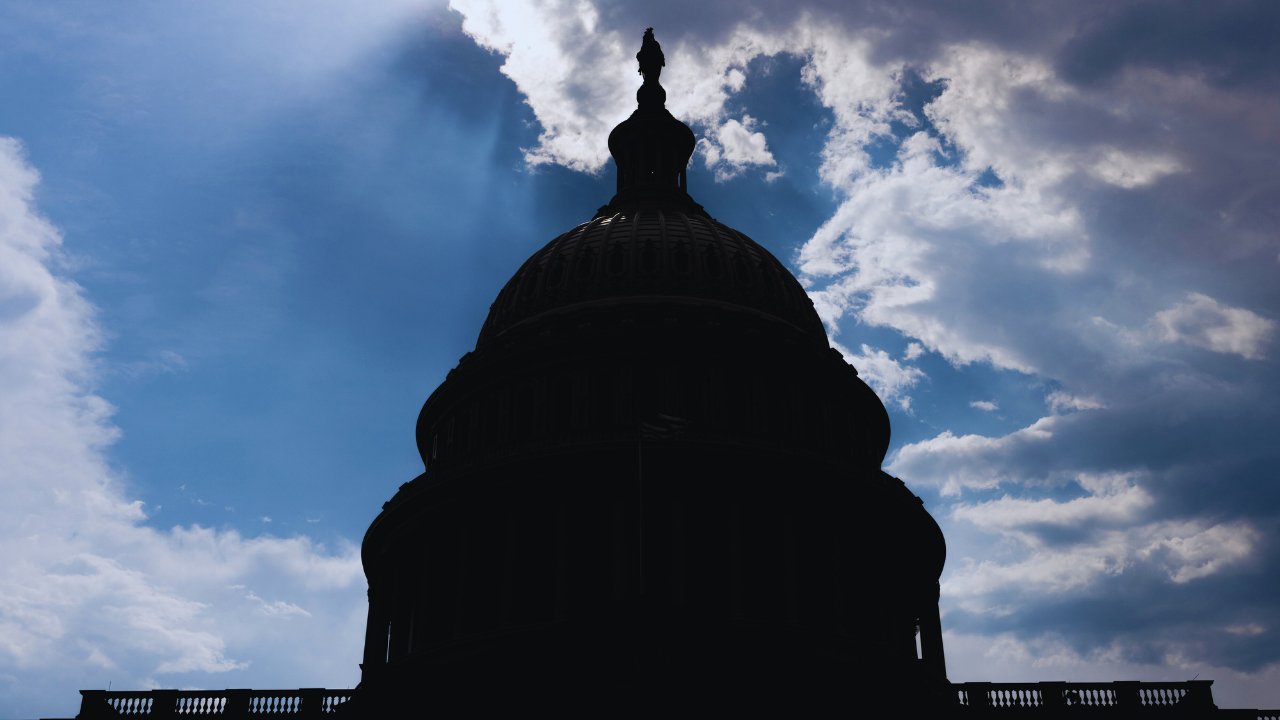
NEWYou can now listen to Fox News articles!
Past government shutdowns have been more political theater than economic shock, with markets and jobs bouncing back quickly.
This time, though, President Donald Trump‘s warning that some furloughed workers may not return to their jobs raises the stakes, turning a routine disruption into a threat to an already fragile labor market.
If Trump carries out that threat, it would almost certainly face an immediate court challenge. But if it stands, a shutdown usually dismissed as partisan brinkmanship rather than financial disruption could deliver lasting economic consequences.
SHUTDOWN EXPLAINED: WHO WORKS, WHO DOESN’T AND HOW MUCH IT COSTS
Robert Conzo, CEO and managing director at The Wealth Alliance, a financial advisory firm, said that such a move would mark uncharted territory.
«If the U.S. federal government dismisses workers instead of furloughing them, I believe the labor market may see a shock with a higher unemployment rate and initial jobless claims,» Conzo told Fox News Digital.
The U.S. Capitol in Washington, D.C., on Wednesday, June 25, 2025. (Eric Lee/Bloomberg/Getty Images)
«The big question to me is whether Trump is using this as a headline negotiation tactic or as a turning point to lower federal spending in the future. I believe using a government shutdown to dismiss federal workers would be unprecedented and face a myriad of questions. Federal workers typically are covered by civil service protections, as such, they need to be dismissed with cause,» he added.
The government is set to shut down at 12:01 a.m. ET on Wednesday if Congress fails to approve a funding extension. A shutdown requires federal agencies to send home workers in roles that are not considered essential. These furloughs are temporary; once Congress resolves the standoff, employees are brought back and receive back pay.
Each week of a shutdown trims about 0.2% from U.S. economic growth, though that loss is typically recouped once federal workers return and agencies reopen.
PARTISAN STANDOFF THREATENS CRUCIAL ECONOMIC DATA, LEAVING FED — AND FAMILIES — IN THE DARK
The job market is already on shaky ground. The Washington, D.C. area, home to a large share of federal workers, has been hit especially hard after Elon Musk’s Department of Government Efficiency (DOGE) advisory board pushed for layoffs earlier this year.
Asked how many federal workers could be laid off, Trump told reporters at the White House on Tuesday, «We may do a lot,» placing the blame squarely on Democrats for the stalemate.
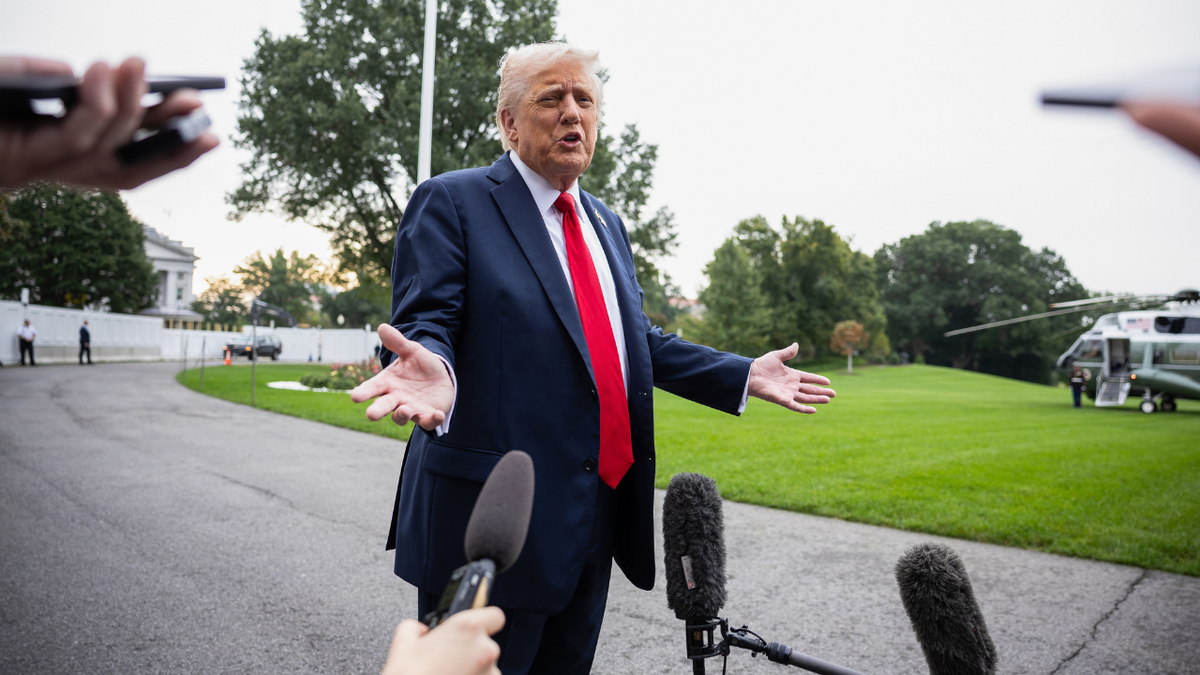
President Donald Trump speaks to members of the media on the South Lawn of the White House before boarding Marine One in Washington on Tuesday, Sept. 30, 2025. (Francis Chung/Politico/Bloomberg/Getty Images)
The Trump administration is preparing to oversee what could be the largest mass resignation in U.S. history, with more than 100,000 federal employees scheduled to leave under its deferred resignation program.
At the same time, federal agencies have drafted plans for sweeping layoffs if lawmakers fail to strike a deal, raising the stakes for a workforce already bracing for upheaval.
And the timing couldn’t be worse: those workers are stepping into a job market that has been losing momentum, with unemployment rising to 4.3% in August — the highest since 2021.
The weak August report came on the heels of another soft reading in July, which prompted Trump to fire the commissioner of the Bureau of Labor Statistics (BLS) Erika McEntarfer. Her removal came hours after the agency released new data showing that job growth had been significantly overstated. The bureau revised its May and June figures downward by 258,000 jobs, marking an unusually large correction that drew sharp criticism from Trump.
WHITE HOUSE SLAMS 911K JOBS REVISION, THE LARGEST ON RECORD, DEMANDS FED RATE CUT
The latest BLS revisions now suggest earlier reports overstated employment by more than 900,000 jobs. The adjustment, the largest correction on record and at the higher end of Wall Street forecasts, comes as Trump intensifies pressure on the Federal Reserve to cut interest rates to prop up growth.
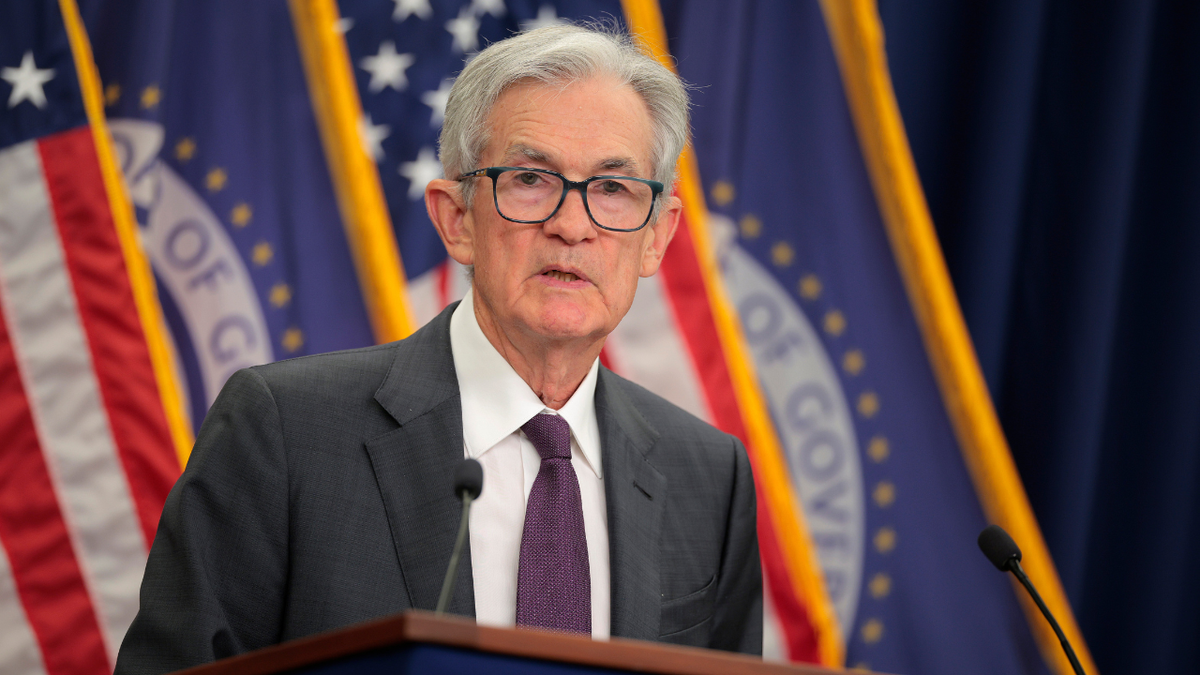
Federal Reserve Chairman Jerome Powell talks to reporters following the regular Federal Open Market Committee meetings at the Fed on July 30, 2025, in Washington. (Chip Somodevilla/Getty Images)
Against that backdrop, the threat of a government shutdown looms large. Analysts warn that sidelining federal workers could add another layer of strain to a labor market already showing cracks.
CLICK HERE TO GET THE FOX NEWS APP
Brian Mulberry, senior portfolio manager at Zacks Investment Management, told Fox News Digital as many as 100,000 jobs could be at risk if a shutdown occurs, with Washington-area workers hit hardest.
Still, he noted the broader economic effect may be muted:
«Would losing 100,000 federal workers move the unemployment rate higher? The answer is no,» Mulberry said, estimating that it would add just 0.06 percentage points if private-sector hiring failed to offset the losses.
jobs,doge,white house,donald trump,politics,economy,congress
INTERNACIONAL
Johnson accuses Schumer of blocking ‘real discussion’ to keep government open
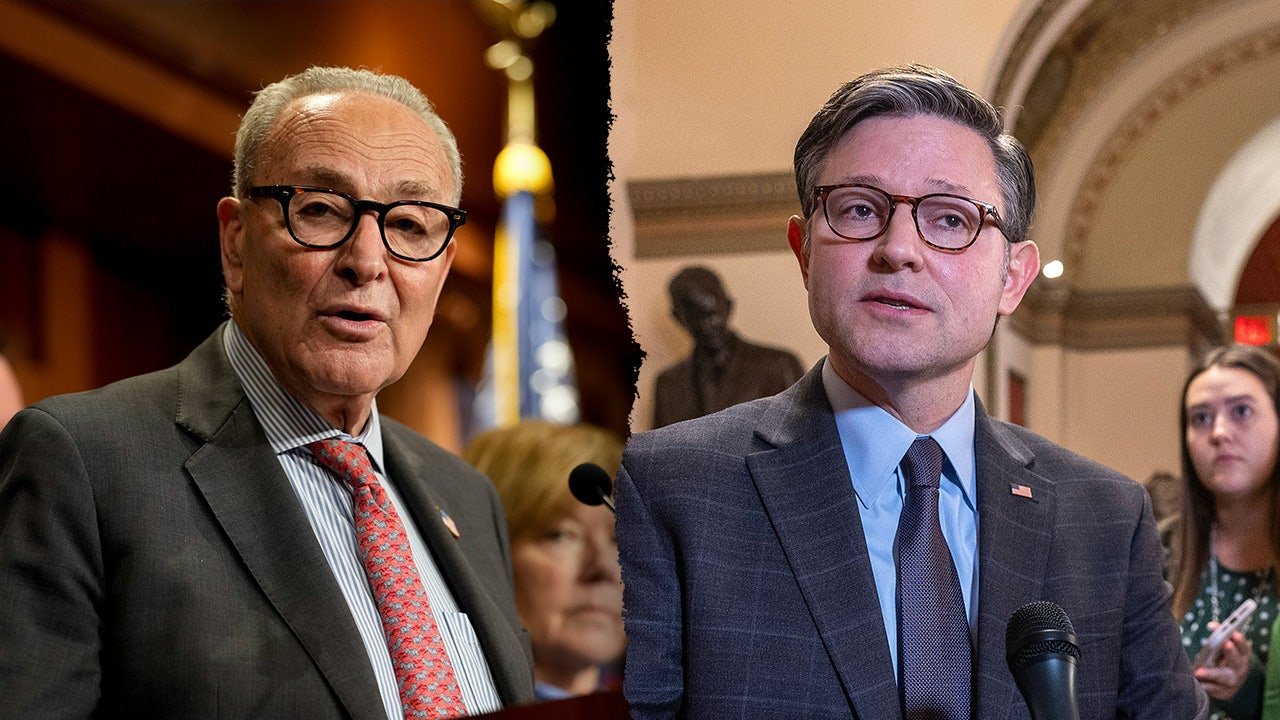
NEWYou can now listen to Fox News articles!
EXCLUSIVE: Speaker Mike Johnson, R-La., is accusing Senate Minority Leader Chuck Schumer, D-N.Y., of refusing to vote to end the government shutdown to kowtow to his left-wing base.
Johnson told Fox News Digital in a sit-down interview that Democrats’ refusal to budge on their current position came up in an hour-long call with President Donald Trump Wednesday afternoon.
«[Trump is] very bothered by that, that Chuck Schumer would do this, Democrats would do this, because we haven’t,» the top House Republican said.
He noted that Democrats had voted on a similar measure to what Republicans are offering on 13 different occasions under former President Joe Biden.
SOCIAL SECURITY, AIRPORTS, FOOD STAMPS: HOW ARE YOU AFFECTED DURING A GOVERNMENT SHUTDOWN?
House Speaker Mike Johnson, right, is criticizing Senate Minority Leader Chuck Schumer’s, left, for refusing to agree to a GOP-led plan to avert a government shutdown. (Kent Nishimura/Bloomberg via Getty Images; Tasos Katopodis/Getty Images)
«And even when the Republicans were in the minority, we did the right thing to keep the government open. And we fully expected that Schumer would do that again, as he always has, but not this time,» Johnson said.
«This is a selfish political calculation he’s made, that he’s got to prove to the far left that he’s going to fight Trump or something. So, we talked about our frustration with that.»
He said Trump appeared «happy» that Republicans remain unified in their federal funding stance but was concerned about the effects of a prolonged shutdown on everyday Americans.
REPUBLICANS ERUPT OVER SHUTDOWN CHAOS, ACCUSE DEMS OF HOLDING GOVERNMENT ‘HOSTAGE’
«But the reason we’re happy about that is because we know we’re doing the right thing for the American people,» Johnson said. «And Chuck Schumer and the Democrats are demonstrating that they are willing to inflict this pain upon the people for their own political purposes. And I think that is a tough thing for them to get over.»
He said of a meeting between congressional leaders and Trump that occurred Monday: «I tried my best in the White House, and he just is in no mood to have a real discussion about these issues. So, we are where we are.»

President Donald Trump, right, salutes Air Force Col. Christopher M. Robinson, commander, 89th Airlift Wing, before boarding Marine One upon his arrival at Joint Base Andrews, Maryland, Friday, Sept. 26, 2025. (AP Photo/Luis M. Alvarez)
Senate Democrats have now rejected a GOP-led plan to fund federal agencies through Nov. 21 three times.
The measure is called a continuing resolution (CR) and is aimed at buying House and Senate negotiators more time to reach a deal on fiscal year 2026 federal funding priorities.
The CR would keep current federal funding levels roughly flat while adding an extra $88 million in security spending for lawmakers, the White House and the judicial branch.
Democrats, furious at being largely sidelined in funding discussions, have signaled they would not accept any bill that does not also extend Obamacare tax subsidies that were enhanced during the COVID-19 pandemic. Those enhanced subsidies are due to expire at the end of this year.
But Johnson, who called the Obamacare subsidies an «end-of-year issue,» argued that the bill was a simple extension of federal funding, leaving Republicans with no realistic path for concessions.
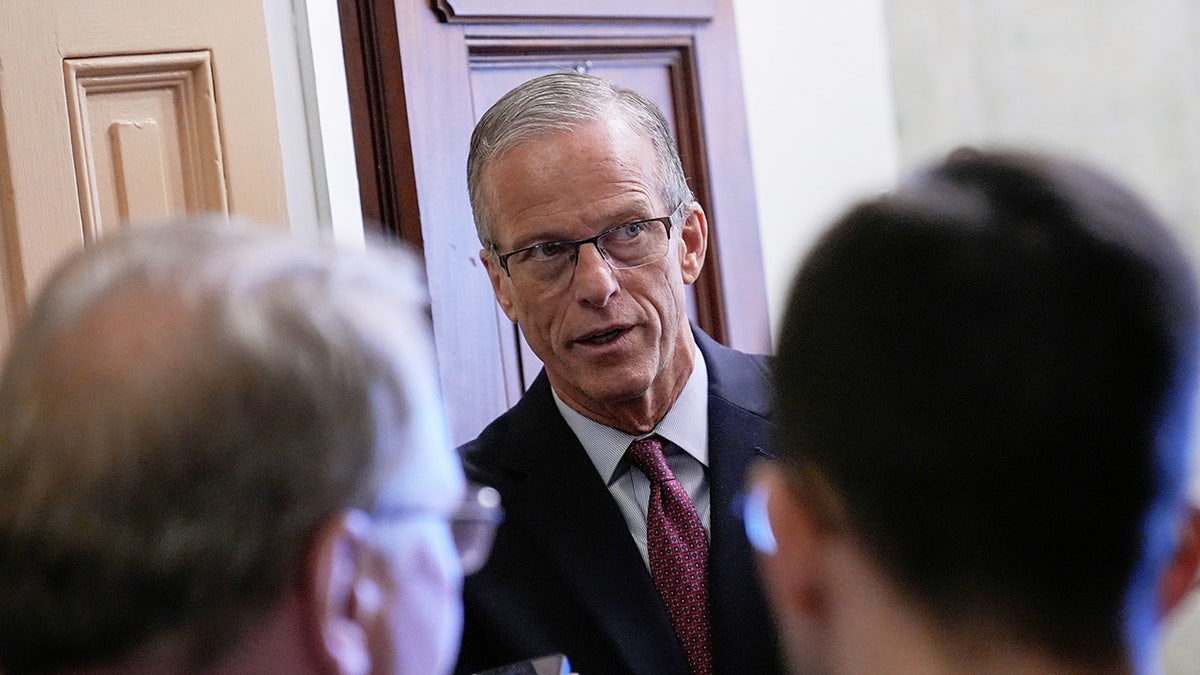
Sen. Majority Leader John Thune, R-S.D., speaks with reporters near his office on Capitol Hill Sept. 18, 2025, in Washington. (AP Photo/Mariam Zuhaib)
CLICK HERE TO GET THE FOX NEWS APP
«If it was not clean and simple, if I had loaded it up with a bunch of Republican partisan priorities, then there would be something for us to negotiate. I could take those things off and offer it again. I sent it over with nothing attached at all,» he said.
«It quite literally is just buying us time to finish the appropriations process, which was being done in a bipartisan manner. So, I don’t have anything to give, there’s nothing I can give. And Chuck Schumer has made such outrageous counter-demands and proposals that he’s the one that has to come to his senses.»
He was referring to Democrats’ counter-proposal for a CR, which would have repealed the Medicaid reforms made in Republicans’ One Big, Beautiful Bill, while restoring funding for NPR and PBS that was cut by the Trump administration earlier this year.
Fox News Digital reached out to Schumer’s office for a response but did not hear back by press time.
house of representatives politics,politics,senate,government shutdown
INTERNACIONAL
Carlos Zanón: “El libro es un enfermo con una salud de hierro”

Es la cuarta vez que Carlos Zanón visita la Argentina pero esta, dice, la nota distinta. En el ambiente se respira otro aroma. La última vez —piensa— fue hace unos ocho o nueve años. “Sí, distinta. De todos modos es el día a día lo que tienes que evaluar. Se ve que la gente habla menos de política, por ejemplo. Eso es algo que me ha sorprendido. Hace diez años, cuando entrabas a un taxi o en un bar, todo el mundo hablaba de política. Ahora parece que la gente está bastante escaldada de hablar de política. Entonces hablamos de otras cosas, de la eliminación de River, y ya está”.
Este escritor nacido en Barcelona en 1966, autor de una veintena de libros —varios poemarios, también libros sobre música y un incipiente énfasis en la novela en los últimos años—, es uno de los grandes invitados del festival Semana Negra BA 2025. Hoy a las siete de la tarde va a estar junto a Claudia Piñeiro en una charla titulada “Charco noir: el género a un lado y otro del Atlántico”. Será en la Casa de la Cultura con la moderación de Hinde Pomeraniec. Y mañana, viernes, a la seis y media de la tarde conversará con Gabriela Saidon en el Centro Cultural de España en Buenos Aires.
“A la Argentina me unen los libros. Desde chaval ya leía autores argentinos”, dice del otro lado del teléfono, y recuerda a uno con mucho cariño: «Julio Cortázar para mí fue una fascinación». “He seguido leyendo las cosas que se hacían aquí. Tengo muchos amigos. Selva Almada, Claudia Piñeiro, Gaby Cabezón. La verdad es que tengo muchas referencias de lo que está pasando aquí“, dice quien hoy se ha vuelto una referencia en la novela negra. Su último libro, Love song (Salamandra, 2022), cuyos personajes viven con la máxima que “todo en la vida pasa una vez y media”, es una buena muestra.
El ingreso de Zanón al género negro fue “muy casual”: “No era consciente, porque en España el género negro es muy flexible, no es sólo el policial y las categorías no son tan marcadas como en otros países. A mí, como autor, el género puro y duro no me interesa. Me interesa más la tradición, que quizás viene de Patricia Highsmith, de una novela psicológica, una novela existencialista también. Me interesa más el por qué que el quién mató a quién: por qué suceden las cosas, qué harías tú en una situación determinada, qué pasa en las ciudades, de qué manera gestionamos las familias».
“Me interesa más explorar ambientes y personajes, también todo aquello que se mezcla con el fantástico, con lo histórico o simplemente con la novela costumbrista de toda la vida. Me interesa, sobre todo, una mirada negra”, dice Zanón y se pone su propio traje, el que más cómodo le queda, porque es el suyo, el que tiene “un cierto pesimismo, un cierto determinismo quizás”. “Mi mirada como escritor, mi visión de la sociedad, es más pesimista y determinista en el sentido de que el destino es el carácter. Lo que te va a pasar es como eres y de ahí no puedes escapar por mucho que lo intentes. Me interesa ese tipo de mirada en donde no hay salida. Es lo que yo llamo mirada negra”.
Antes de Love song y Taxi, antes de resucitar al emblemático detective de Manuel Vázquez Montalbán con Carvalho: problemas de identidad, incluso antes de Yo fui Johnny Thunders y de Tarde, mal y nunca, lo que había en Zanón era un poeta. “La poesía es la manera en que gestiono la literatura: trabajar las palabras y el contexto. Toda literatura, si es literatura, es música, y si es música, es poesía. Nos gusta cómo nos explican las cosas, más que lo que nos explican: las palabras que eligen, el tiempo, la musicalidad. La diferencia entre redactar y escribir es la música”.

En los sesenta y setenta, en la casa familiar de los Zanón no había libros desperdigados por las habitaciones ni una pila de títulos sosteniendo una maceta con un potus. Mucho menos una colorida biblioteca. Sus padres no eran grandes lectores, sin embargo le insistían con los beneficios de la lectura. A su padre le gustaba un libro, tal vez el único, Los tres mosqueteros de Alejandro Dumas, y se lo inoculó. “A mí tampoco, cuando era crío, me gustaba leer, pero sí me gustaba mucho Los tres mosqueteros. Lo leí muchísimas veces. Ese fue mi primer contacto con la literatura», agrega.
En el fondo del recuerdo aparece un tío, docente de primaria que murió en un accidente de tránsito. Cuando Carlos Zanón se fue a vivir con sus abuelos se encontró con su biblioteca. “Leer esos libros fue una manera de estar en contacto con él. Era una biblioteca absolutamente heterogénea, desde Cómo aprender kárate en treinta lecciones a una colección sobre las cien mejores obras de la historia. Recuerdo Lord Byron, Bécquer, Julio Verne, Emilio Salgari, los cuentos de Cortázar. Leía Madame Bovary a una edad que no entendía nada. Todo era como un misterio, un código secreto».
“Somos historias”, dice Zanón. “Nos explicamos todo como historias y creo que eso tiene que ver mucho con la ficción y con la función literaria. El hecho de abrir un libro, que es hecho individual, me parece que es algo imparable, algo siempre muy subversivo”. Ni las pantallas podrán, opina Zanón, porque “el libro es un enfermo con una salud de hierro”. “Leer no nos hace mejores, pero sí nos abre la cabeza y nos permite vivir otras vidas, porque con la que tenemos no nos es suficiente. Eso creo que es lo que dan los libros. A diferencia de otras plataformas, exige un esfuerzo, y es recompensado”, concluye.
INTERNACIONAL
Revuelo político en Chile por una desaparecida de Pinochet que encontraron viviendo en Argentina

Así fue el encuentro con la mujer que vive en Miramar
Críticas de la oposición contra el Gobierno de Boric

 POLITICA3 días ago
POLITICA3 días agoKicillof habló del triple femicidio y le pidió a Milei que convoque a los gobernadores: “El narcotráfico afecta a toda la Argentina”

 CHIMENTOS2 días ago
CHIMENTOS2 días agoEl desolador llanto de Thiago Medina por sus hijas tras despertar del coma, a 17 días del accidente: “Se largó a llorar cuando le hablaron de las nenas”

 POLITICA9 horas ago
POLITICA9 horas agoCristina Kirchner chicaneó a Javier Milei: “La Recesión Avanza y los dólares se te siguen yendo”



